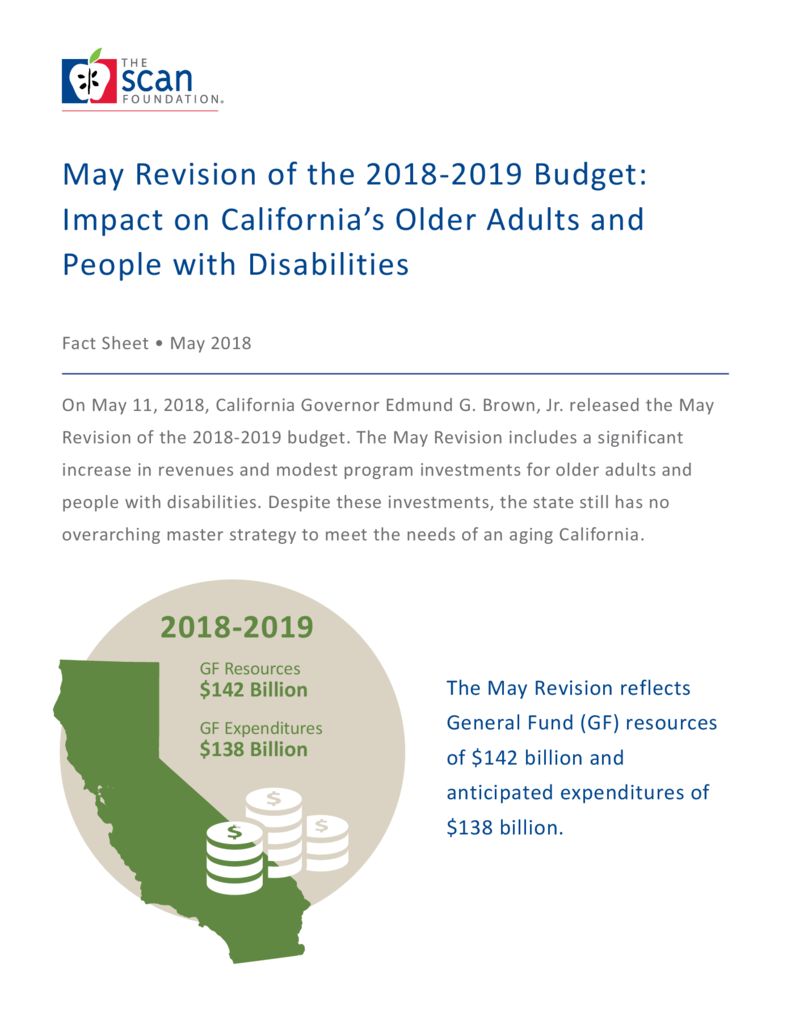May Revision of the 2018-2019 Budget: Impact on California’s Older Adults and People with Disabilities
summary
On May 11, 2018, California Governor Edmund G. Brown, Jr. released the May Revision of the 2018-2019 budget. While it includes a significant increase in revenues and modest program investments for older adults and people with disabilities, the state still has no overarching master strategy to meet the needs of an aging California. Read more in this fact sheet.
Date Updated: 05/31/2018Overview
On May 11, 2018, Governor Edmund G. Brown, Jr. released an updated budget forecast for the 2018-2019 budget, referred to as the “May Revision,” which accounts for changes in revenues and proposed changes to expenditures from the January budget. The May Revision reflects a revenue increase of $3.7 billion above the January projections, and an $8 billion General Fund (GF) surplus from fiscal year 2017-2018 for a total of $142 billion in GF resources.1 The May Revision includes $138 billion in GF expenditures, leaving a reserve of $3.2 billion GF for the fiscal year beginning on July 1, 2018, and ending June 30, 2019.1,2 The Budget Stabilization Account, referred to as the Rainy Day Fund, is projected to increase to $13.8 billion.1 As part of the May Revision, the governor proposes an additional $4 billion in new, one-time GF spending in fiscal year 2018-2019 for infrastructure, homelessness, and mental health investments…
Download the publication for all visuals and complete references.
Continue Reading
This policy brief establishes a basis for the critical system transformation activities necessary to produce a high quality, person-centered system of care for older adults and people with disabilities.
This fact sheet provides the background and context for California’s Coordinated Care Initiative (CCI), established as part of the enacted 2012-2013 budget. It outlines the changes to the delivery of medical care and longterm services and supports (LTSS) for individuals eligible for Medicare and Medi-Cal as well as Medi-Cal-only seniors and people with disabilities initiated by the CCI.
This is the third report coming from the California Medicaid Research Institute (CAMRI) project entitled: Comprehensive Analysis of Home- and Community-Based Services in California. The report describes Medicare and Medi-Cal spending for those beneficiaries using long-term services and supports funded by Medi-Cal.


